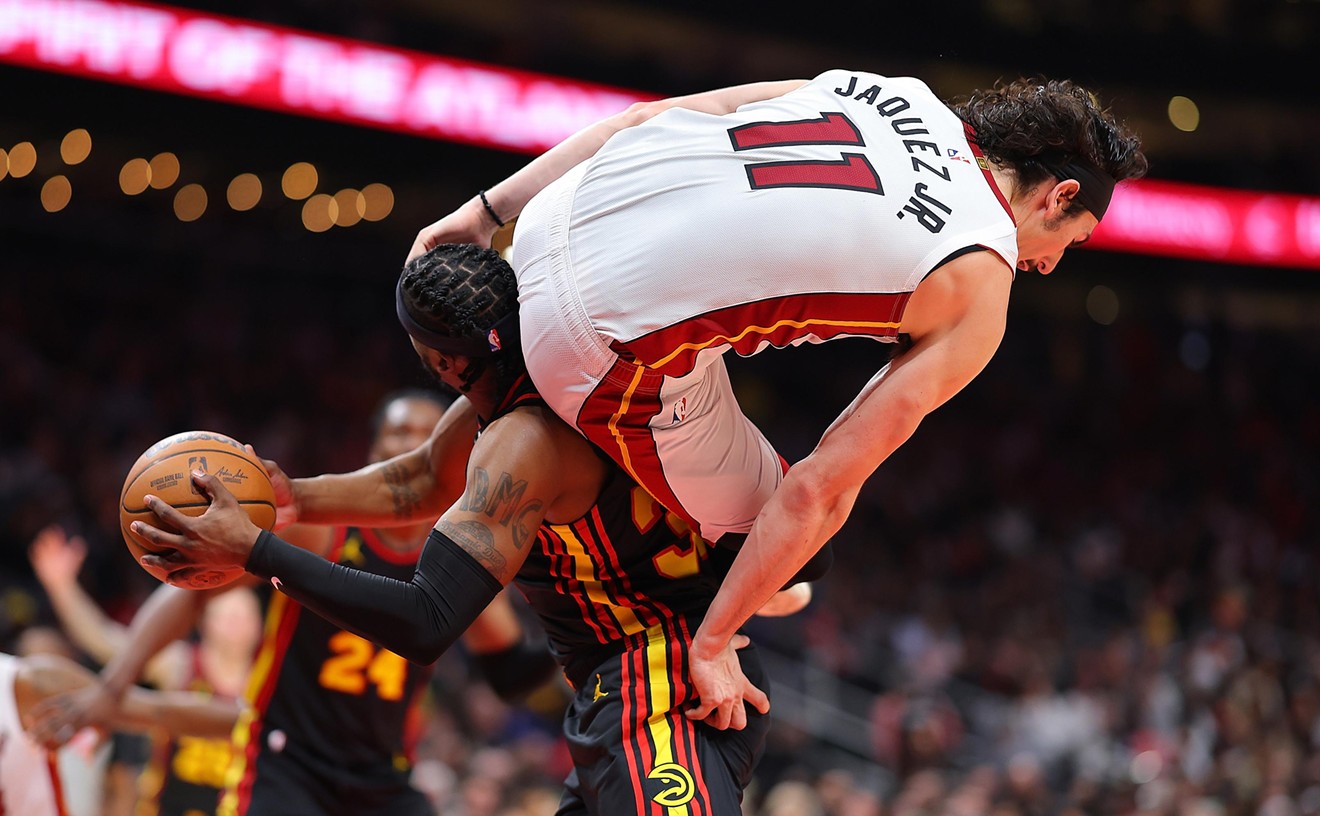To put that into perspective, in 13 counties across the state, non-party-affiliated voters now outnumber one of the major parties. In Miami-Dade, Broward, and Palm Beach, independents outnumber Republicans.
In fact, both major parties actually lost voters in the past year, according to the State Department of Elections, while independents continued to grow.
That's great and all, except no
Operating under the radical political ideology that more people voting in more elections makes for a better democracy (call us crazy!), we would like to point out a few reasons why you should reconsider registering as an independent in Florida.
You Can't Vote in Primaries
Florida is a closed primary state. That means only people registered with a party can vote in the party's primary election on the state and federal levels. This isn't the case in all states, but it is in Florida.
Thanks to a Weird Loophole, Sometimes You Can't Make a Meaningful Vote in the General Election, Either
There are some cases where a congressional district may lean so far in favor of one party that the other party doesn't even bother running a candidate in the general election. That means the election is actually decided in the primary. Imagine a Republican-leaning congressional district where a hard-core Tea Party-style conservative is facing a moderate mainstream Republican with no Democrat in the race. An independent might decide he wants to weigh in on that — and he can! Technically, when no other party has a candidate, state law opens the primary to all.
Except there's one strange loophole: If someone — literally anyone — registers as a write-in candidate for the general election, the primary remains closed. It's really easy to register as a write-in candidate, actually. There have been plenty of cases where the dominant party even recruits a nobody to run as a write-in just to close the primary. State lawmakers have tried to close the loophole, but the Tallahassee establishment can't seem to be bothered.
Yes, Primaries Do Present a Choice to Voters
Do primaries offer real choices? Honestly, sometimes they don't — when two mainstream party candidates square off, it's easy to feel apathetic. But this is Florida, and sometimes the primary choices are pretty drastic, especially for open seats.
Consider this: Marco Rubio is retiring from the U.S. Senate after his presidential run, and both parties have contested primaries for the seat featuring candidates from all over the ideological map.
The Democrats have Rep. Patrick Murphy, a consummate moderate who once donated to Mitt Romney, facing off against Rep. Alan Grayson, a strict progressive who once called Dick Cheney a "vampire." There's a whole lot of daylight between the two.
Meanwhile, Republicans are looking at a four-person primary in that race. Rep. Ron DeSantis is beloved by the Tea Party. Rep. David Jolly isn't a full-fledged moderate, but he's far closer to the center than DeSantis. Lt. Gov. Carlos Lopez-Cantera has never held federal office, but he's pretty much a Miami-Dade-style Republican. Todd Wilcox is a businessman who remains a bit of an ideological wildcard.
In any event, there are pretty clear choices on both sides of the aisle in a primary election that will be held in August. And indie voters will get zero say on either side of the race until the general.
Primaries Do Matter
Let's take our widely unpopular Gov. Rick Scott for example. He came out of nowhere to launch his outsider bid for governor, winning the Republican primary against heavily favored former state Attorney General Bill McCollum. Scott did that by only 3 percentage points. That's not exactly a razor-thin margin, but the race could have easily gone another direction — especially with a different makeup of voters at the polls. Pre-election polling showed McCollum was more popular with Hispanics and younger voters. Those are not only demographics that tend to show up less for primary elections, but they're also the same group that now tends to register more often as independents.
Of course, no one can say for certain that the growth in independent voters in Florida led directly to Scott's inglorious rise, but it might very well have made it much more likely.
Politicians Do Accurately Represent the Values of Americans — Who Vote Regularly
There's a lot of
Here's the dirty secret: Politicians do represent the values of Americans who vote regularly, especially on economic issues. Wealthier, older white people tend to vote more than anyone else. And guess what? Their interests are exactly those that most politicians choose to fight for. Eschewing the party system, ignoring the primaries, and going independent may be a tempting middle finger to the establishment — but don't expect to inspire the winning side to care about your issues.











